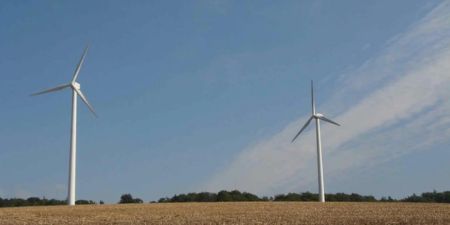
The German government’s target of sourcing 80 per cent of the country’s electricity from renewable sources by 2030 is very much achievable for Germany if current positive trends persist, economy minister Robert Habeck has said at a conference on structural economic change in former coal regions.
The minister said that the technical conditions for achieving ambitious renewable power targets are there but that a successful transformation also requires resolve and societal unity to succeed.
Ongoing protests against climate and energy transformation policies have shifted into focus in Germany.
Protests by affected groups, such as farmers, have been used as a vehicle by far-right groups including the anti-climate action party AfD, which hopes to benefit from discontent in upcoming elections in the European Union in June, and in three eastern German states later this year.
Lusatia, the coal region where the conference took place, is one of the proving grounds for achieving a ‘just transition’, which in turn could help fend off attempts by far-right groups to make use of the discontent.
Renewable power expansion in Germany is accelerating and can reach the government’s targeted aim of 80 percent in power production by 2030, economy and climate action minister Robert Habeck said at a conference by the German Federation of Energy and Water Industries (BDEW) in coal mining region Lusatia.
“If we continue at the current pace, we will make it,” the minister said in a report by news agency dpa. Habeck said that Germany was about to “enter the homestretch” in renewables expansion, which allowed the country to source more than half of its electricity from wind turbines, solar panels and other clean sources for the first time in 2023.
Sign up for the CREATE Newsletter and stay updated on the latest information in Renewable Energy Education.
Copyright @ 2024 Center for Renewable Energy Advanced Technological Education
This material is based upon work supported by the National Science Foundation under Grant #2201631. Any opinions, findings, and conclusions or recommendations expressed in this material are those of the author(s) and do not necessarily reflect the views of the National ScienceFoundation.